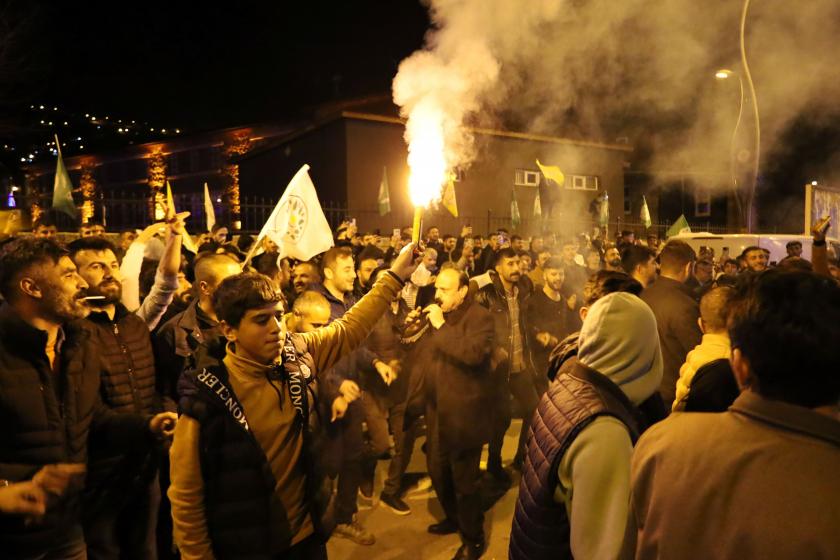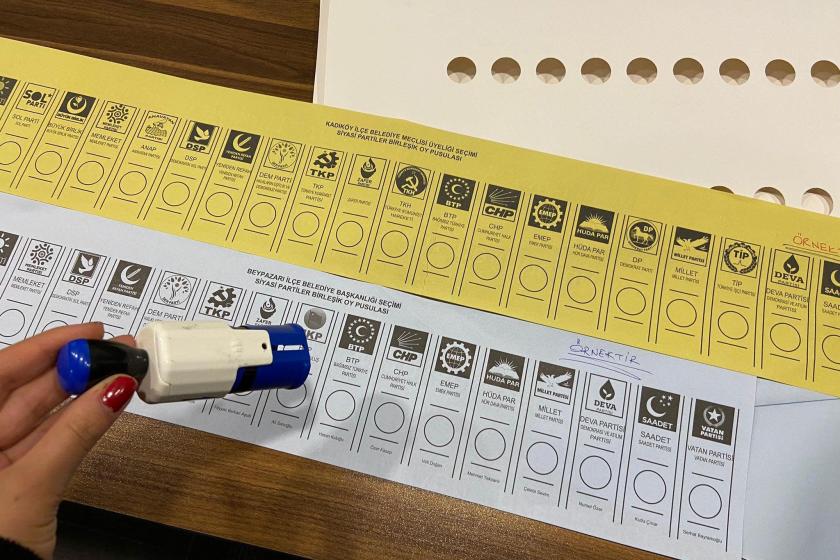The “Turkey’s 500 Largest Industrial Entities-2018” report compiled by Istanbul Chamber of Industry (ICI) has come out. The metal and chiefly automotive sector once more tops the list in which Koç Holding-affiliated TÜPRAŞ comes first. Even if the bosses’ profits have increased, they complain about financing costs and signal their intention to make workers pay the price. Noting that workers should bring up the high profitability they have furnished when agreements come up for negotiation and demand their share, academic Özgür Müftüoğlu said, “If workers show resolve and pressurize the union they can stamp their mark.”
According the statement made by the ICI, the net sales of Turkey’s 500 largest industrial entities rose by 34.5% in 2018 to 878 billion lira. A decisive factor behind the increase in net sales was “increased exchange rates boosting export earnings alongside price increases.”
According to the ICI’s 500 Largest Industrial Entity research data, TÜPRAŞ once again headed the list for 2018 with its 79 billion lira in production-based sales. With Ford Otomotiv second placed with 31 billion lira in production-based sales, Toyota Otomotiv maintained its third place with 23.6 billion lira in production-based sales.
The ICI 500’s financing costs rose from 49.8% to 88.9% as a share of operating profit in 2018 and these figures show that industrial companies devoted a fairly large portion of their 2018 profit to financing costs.
Increasing to 67%, the ICI 500’s debt to equity ratio has risen to the highest level ever recorded. The number of entities among the ICI-500 that made a profit fell from 422 to 381 in 2018, while the number of loss-makers rose from 78 to 119.
ICI Board of Directors Chair Erdal Bahçıvan commented as follows: “Of course, our research also conveys negative auguries that are food for thought for everyone, not just us. One such result that we will address is the increase, an accretion over the years, in financing costs which have increased exponentially year by year. The ICI research once more shows that our industrial sector has notched up a successful performance in its core activities, sales and profitability in core activities despite having endured a tough year such as 2018. But this performance was overwhelmed by the financing costs that impacted on financial results. Unfortunately, the destruction financing has wrought on financial results shows that, however much success is achieved in core activities, this is unsustainable because this financing destruction that has been a problem of long years and not just one year is disrupting the equity ratio and making it hard for industrialists to access quality sources of financing. The ICI 500’s financing costs rose from 49.8% to 88.9% as a share of operating profit in 2018. I mean, we have until now complained about 50%, but now industrial companies have devoted virtually all the profit they made in 2018 to financing costs. Increases in both financial debt and the financing cost in the second half of 2018 led to a leap in industrial companies’ financing costs. That is, financing costs continued to be the major determinant of industrial companies’ profitability in 2018. The ICI 500 encountered financing costs that were augmented by out-of-the-blue financial fluctuations and shocks in 2018. Interest rate rises and increased inflation due to the devaluation of the Turkish lira created negative financial conditions for the ICI 500 in the second half of the year.”
Assessing the list of Turkey’s 500 largest industrial entities and the ICI administration’s comments, academic Özgür Müftüoğlu stressed that the metal sector was the most profitable sector. Pointing out that they constituted the companies that had made most profit in the past ten to fifteen years, Müftüoğlu said, “So, there are also incentives that they obtain from the state to a large extent, incentives labelled crisis, public-private partnerships etc. They both make a profit and get incentives.” Referring also to the Employers' Association of Metal Industries group agreement that covers more than 100,000 workers in the metal sector and comes up for negotiation in the coming days, Müftüoğlu commented, “Despite this, when contracts of employment and collective agreements come onto the table, they do all in their power not to give workers a share. The stance the metal worker adopts during the Employers' Association of Metal Industries process is very important because the metal sector is a vanguard sector. It is a decisive sector having the most skilled workforce in which wages are relatively the highest. It also has a high level of organization. The position unions take against capital is crucial here. If they compromise with capital under the conditions capital wishes for and unless they follow the path of bringing up the high profitability furnished until now and demanding labour’s share of this, no impact will be created. If they also come from a position that looks out for workers such as subcontractees etc. who expend labour in that sector and to a large extent work without guarantee, not just those who are unionized, this will impact on the upcoming process.”
Saying, “In an environment in which inflation is high, wages are being kept under pressure and democracy is being crushed, if workers focus on such aspects they can give rise to hope again,” Müftüoğlu noted, “Whether the current unions can do this and to what extent they can is a separate question. There are many mistakes that have been made until now and they must not succumb to them again. This is a very important point and it is essentially the workers who determine the stance unions will take. If workers display resolve and force the union into demands that protect workers’ rights and interests, the workers’ movement in Turkey can stamp its mark as future events unfold – despite certain negative factors.”
Stating that, just as in previous crisis periods, the bosses will also try to a large extent to fob off the cost onto the state in this period, Müftüoğlu continued, “The unions absolutely must look out for this. You sit at the table on the workers’ behalf. They say they can’t pay the insurance contribution or some other thing so the state should foot it. Unions must object to this. This still comes out of the worker’s pocket. Funds transferred from the general budget are being channelled towards capital. Unions must not just engage in wage unionism here. If they do so, they bring the rest of the working class up against them. They must display a stance towards trade unionism that is not just wage unionism, but thinks of the interests of all sections of society and looks out for them, too.” (EVRENSEL DAILY)
(Translated by Tim Drayton)



